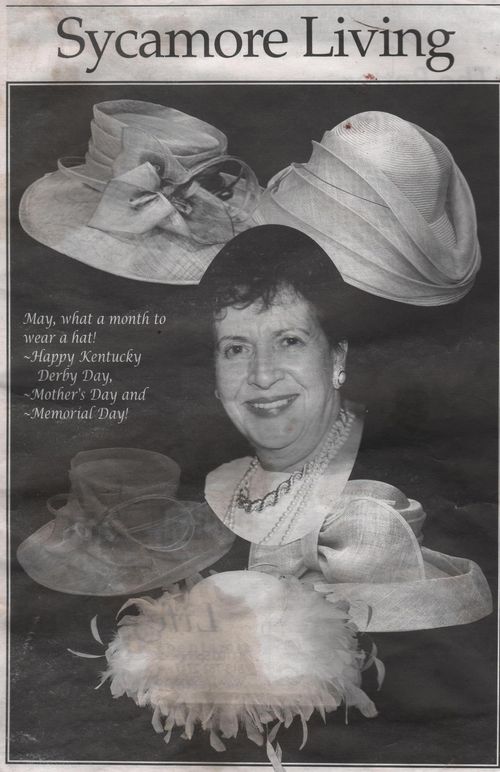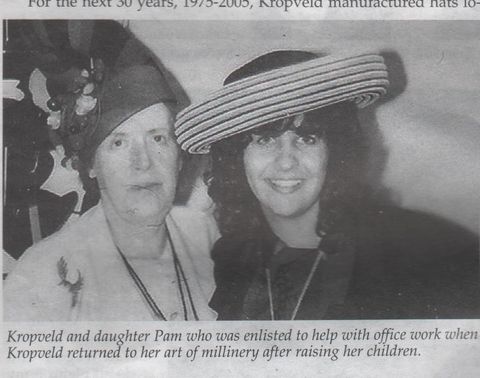Cincinnati's first choice painting company
Are you looking to paint your home's interior? Does your business need remodeling or a new exterior? Dutch Home Painting is here for you! We have over 50 years of experience painting homes, stores and businesses in the area and we'll ensure you're completely satisfied! We use the finest paint and materials and we can expertly color match to your exact tastes. For professional painting at cost effective prices there's no better choice than Dutch Home Painting Inc.
Read About Our Company And Family History
Click here to visit our other family business
A local Holocaust survivor and the author who documented her story captivated the attention of students at the University of Cincinnati Nov. 12.
Ruth Kropveld’s experience during the Holocaust is the focus of the book “Nevertheless We Lived,” by Lisa Phillips. The pair spoke to almost 60 students in Gila Safran Naveh’s Holocaust literature class at UC’s main campus in Clifton. Naveh is head of the Department of Judaic Studies.
Kropveld began the talk by discussing the anniversary of the fall of the Berlin Wall, which was featured on a news program Nov. 9. Kropveld explained that she was disappointed to see the story only briefly mentioned and that Nov. 9 is remembered for a devastating event as
well: the night now known as Kristallnacht.
Kropveld’s world changed forever that day as Nazi soldiers destroyed the upscale hat shop where she worked on a famous avenue in Berlin, Germany, and nearby stores owned by Jewish neighbors. It was the first night her family did not feel safe to sleep in their homes. “This is something I will have in my mind all my life,” Kropveld said. “It was a terrible thing to see.”
Kristallnacht, or “The Night of the Broken Glass,” was the beginning of the story that Kropveld from her family and to another country.
“Nevertheless We Lived” was published in June 2008 and can be found online at major book retailer’s Web sites.
The memoir continues after Kropveld’s account of Kristallnacht when 15-year-old Ruth realized she was too old for the Children’s Transport, which sent children to safety in neutral countries.
She decided to seek refuge in Holland by sneaking across the German/Holland border. She left her home and her family, not realizing it would be 10 years before she would see them again. Across the border, a home for child refugees took Ruth in.
When Germany invaded Holland, the group was shuffled around from place to place until she arrived in the city of Winterswijk, where a rabbi’s family took her in. In this city, Ruth fell in lover with Jesse Kropveld who later became her fiancé.
Laws became increasingly harsh for Jewish people, and Jesse’s family took her along with them into hiding until the group was forced to separate and Kropveld was on her own.
Under the protection of the Dutch resistance movement, Kropveld endured a heart wrenching journey across Holland with many close Nazi encounters.
The resistance placed her in more than five homes during the years she lived in hiding. In the final home she lived in, she played a role of a maid and was forced to wait on a German Commandant who had taken over the home as his office, making sure he didn’t realize she was
Jewish.
Kropveld lived in the house until Holland was liberated. Shortly after, she met two soldiers who lived in the same city in Israel as her cousins. “My parents don’t know I’m living,” she said to the sympathetic soldiers who sent a message to Kropveld’s cousin. Her cousins got the word to her parents who were already living in Cincinnati. Her parents then began the Visa process for their daughter and her fiancé.
Ruth and Jesse found each other in Holland after the war and were married before moving to Cincinnati to start a new life. Kropveld opened her own milliner shop named Chapeau Creations, like the one her parents owned and had been destroyed years before.
A name you can trust
With 50 years of experience in Cincinnati, we've built a reputation for excellent painting services at affordable prices. We're locally owned and family operated, fully insured, lead paint certified and provide worker's compensation. For new clients, we're proud to offer a 5% discount. If you need painting services, Call Dutch Home Painting Inc - where reliability, professionalism,
cost-effectiveness and quality are always assured.





Top quality materials
We carry the finest paint brands including Sherwin Williams, Porter Paints and many more. Our paint is odor free and 100% lead free certified and safe for any home or office. Do you have a specific color in mind? We can expertly match any color with our fully computerized color matching system.
Call us today to learn more!
Call us! (513) 604-7944
Why Choose Us?
- Expert, Computerized Color Matching
- Fully Insured and Provide Workers Compensation
- Trained in Latest Paint Technologies
- 50 Years In Business
- House Cleaning
- Deck Refurbishing
- Free estimates
- Our Painters Have 50 Years of Experience
- Weekend Hours Available
- Locally Owned & Operated
- Commercial, Industrial and Retail
- Lead Paint Certified
